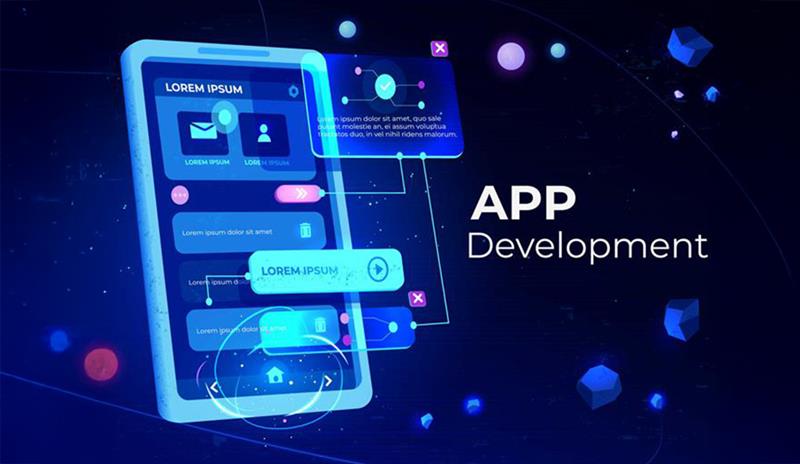
Introduction
In the era of digital transformation, mobile app development has emerged as one of the most sought‑after fields. From entertainment and e‑commerce to banking and healthcare, mobile apps dominate every aspect of our lives. Meanwhile, the rise of artificial intelligence (AI) is reshaping countless industries, automating routine tasks, and augmenting human capabilities.
Today, a critical question is making the rounds in developer communities and company meetings alike:
“Will AI Replace Mobile App Developers?”
The short answer is: Not entirely. But the long answer is more nuanced. AI will certainly transform the role of mobile app developers, making certain skills obsolete while creating new demands for creativity, critical thinking, and higher‑level problem‑solving.
In this long‑form guide, we’ll explore:
- The current state of AI in mobile app development
- The role AI plays in coding, design, and testing
- The future trends shaping mobile app development
- What developers can do to adapt and thrive
- The balance between AI and human ingenuity
If you’re a mobile app developer‑or an entrepreneur looking to hire one‑this article will help you understand the roadmap for the future.
Hire a Developer
The Evolution of AI in Mobile App Development
AI has been quietly reshaping mobile app development for years. What started as basic automation tools evolved into advanced platforms capable of making decisions, analyzing data, and generating code. Here’s how AI has evolved in the app development space:
From Simple Scripts to Smart Assistants
Early mobile app developers used basic scripts and automated build tools. Today, sophisticated AI platforms like GitHub Copilot, ChatGPT, and TabNine can write functional snippets of code, review existing code, and suggest improvements.
AI for Design
Modern design platforms like Figma and Adobe XD use AI‑driven recommendations, making it simpler for developers and designers to collaborate. Tools like Uizard can even turn hand‑drawn sketches into working app designs.
AI‑Powered Testing
App quality is critical. AI‑based testing platforms like Testim and Appium AI can now find bugs, review UI responsiveness, and validate app behavior across countless devices and screen sizes.
Takeaway: AI has evolved from automating simple, repetitive tasks to becoming an intelligent assistant across every phase of mobile app development.
The Current Capabilities of AI in Mobile Development
Here’s where AI shines right now:
Code Generation
Tools like GitHub Copilot, TabNine, and ChatGPT can:
- Generate boilerplate code
- Suggest code snippets
- Refactor and review existing code
Automated Testing and Quality Assurance
AI can:
- Identify potential bugs
- Simulate user interactions
- Perform regression testing
- Speed up the QA process
App Optimization
AI platforms can analyze user behavior and app performance to:
- Suggest UX/UI improvements
- Identify bottlenecks
- Predict potential crashes
App Personalization
Modern mobile apps use AI and Machine Learning (ML) to:
- Tailor the user experience
- Push personalized recommendations
- Improve engagement and retention
Will AI Replace Mobile App Developers? The Real Answer
Short Answer: No. Not entirely.
Long Answer: AI will redefine their role, making certain repetitive and predictable coding tasks obsolete, while highlighting the value of creativity, problem‑solving, and understanding complex business requirements.
Here’s why:
What AI Will Replace
- Repetitive Coding: AI will reduce the need for boilerplate coding.
- Basic Testing: Automated AI testing will minimize manual QA efforts.
- Generic App Templates: AI will enable rapid generation of generic app templates.
What AI Will Not Replace
- Creative Architecture: Humans will still design high‑level app architecture.
- User‑Centric Design: Understanding nuanced user needs and translating them into compelling app features will remain a human forte.
- Complex Problem‑Solving: Humans will continue to solve unique and complex coding and design challenges that AI can’t anticipate.
- Ethics and Accountability: Humans must oversee AI to enforce responsible practices and adhere to privacy regulations.
AI Trends Impacting Mobile App Development
Here’s a closer look at some AI‑driven trends reshaping mobile app development:
-
Code Assistants and Copilots
Developers can now code 40–60% faster using AI‑based coding platforms. They save time, reduce errors, and allow developers to focus on higher‑order tasks.
-
Natural Language to App Creation
Platforms like Builder.ai and Appgyver enable entrepreneurs and developers to describe their app ideas in plain language and have AI generate a working app or boilerplate code.
-
Personalization Through AI
App developers are leveraging AI and ML to create personalized app experiences that learn from user behavior.
-
Predictive App Maintenance
AI predicts potential downtime, crash hotspots, and bottlenecks in mobile applications, allowing developers to fix issues before users experience them.
-
Low‑Code and No‑Code Solutions
More AI‑enhanced platforms are making mobile app development accessible to entrepreneurs, startups, and businesses that lack traditional coding experience.
The New Role of the Mobile App Developer
With AI reshaping mobile app development, developers must evolve their skill sets. Here’s how:
New Skills for Developers:
- Understanding AI and ML libraries (e.g., TensorFlow, PyTorch).
- Designing intelligent mobile app experiences.
- Managing AI‑driven platforms.
- Evaluating and selecting AI tools.
- Focusing on security, privacy, and responsible AI deployment.
New Focus Areas:
- Complex Architecture and Scalability
- User Experience and Human‑Centric Design
- Business Logic Development
- Integrations and API Management
- AI Model Training and Optimization
Will AI Create New Opportunities for Mobile App Developers? Absolutely.
Far from putting mobile app developers out of work, AI is creating new roles:
- AI Model Integrators: Specialized developers integrating AI and ML into mobile platforms.
- Prompt Engineers: Experts in extracting precise and actionable results from AI platforms.
- Data‑Driven Designers: Developers focusing on leveraging AI analytics for better user experience.
- Ethics and Governance Roles: Ensuring AI doesn’t introduce bias or compromise privacy.
Challenges for Mobile App Development in an AI‑Driven World
While AI brings countless benefits, it also creates new challenges:
-
Dependence on AI Tools
Developers risk relying too heavily on AI platforms, potentially impacting their problem‑solving abilities.
-
Reduced Entry‑Level Opportunities
Automated coding platforms may limit entry‑level positions and shift the focus to higher‑level roles.
-
Ethical and Privacy Concerns
With AI extracting and analyzing user data, mobile app developers must stay vigilant about privacy regulations and data security.
-
Skill Gap
Developers will need to retrain and upskill themselves to remain relevant in this new era.
What Will the Mobile App Development Landscape Look Like in 5–10 Years?
Here’s a prediction:
- More Human‑AI Collaboration: AI platforms will evolve from tools to collaborators, making mobile app development a highly symbiotic process.
- More Specialized Roles: Developers will evolve into architects, integrators, and experience designers.
- Better, Faster, and Smarter Development: AI will reduce time‑to‑market, making mobile app creation more accessible and innovative.
- Ethics Will Matter More: Greater focus will be placed on privacy, fairness, and responsible AI practices.
- Increased Focus on User Experience: AI will enable developers to focus more on creating seamless, human‑centric app experiences.
Preparing for the AI‑Driven Future as a Mobile App Developer
Here’s how mobile app developers can stay relevant:
- Embrace AI Tools: Learn to work with platforms like ChatGPT, Copilot, Claude, and Gemini.
- Develop New Skills: Focus on higher‑level programming, AI model deployment, and mobile app architecture.
- Prioritize User Experience: Focus on making mobile app interfaces more human‑centric and accessible.
- Adopt Continuous Learning: Stay updated with advances in AI, mobile platforms, and design trends.
- Ethics and Regulations: Stay informed about AI ethics, data privacy, and regulations.
Final Thoughts: Will AI Replace Mobile App Developers?
The future of mobile app development isn’t about AI replacing developers — it’s about AI augmenting their abilities. AI will take over repetitive, predictable, and routine coding and testing tasks, allowing developers to focus more deeply on design, architecture, user experience, and innovation.
For developers, this is an opportunity, not a threat. Those who evolve their skills and adapt to this new era will find themselves at the center of an exciting revolution, making mobile apps more intelligent, more user‑centric, and more impactful than ever before.













